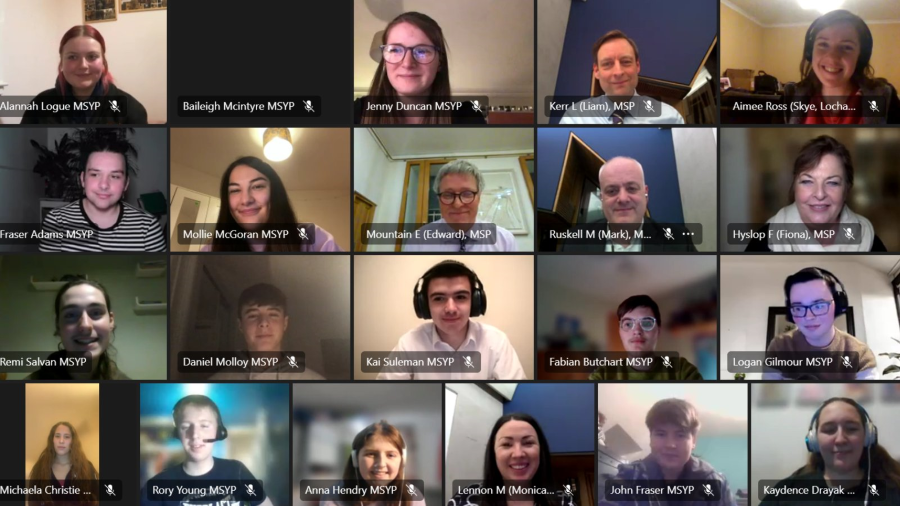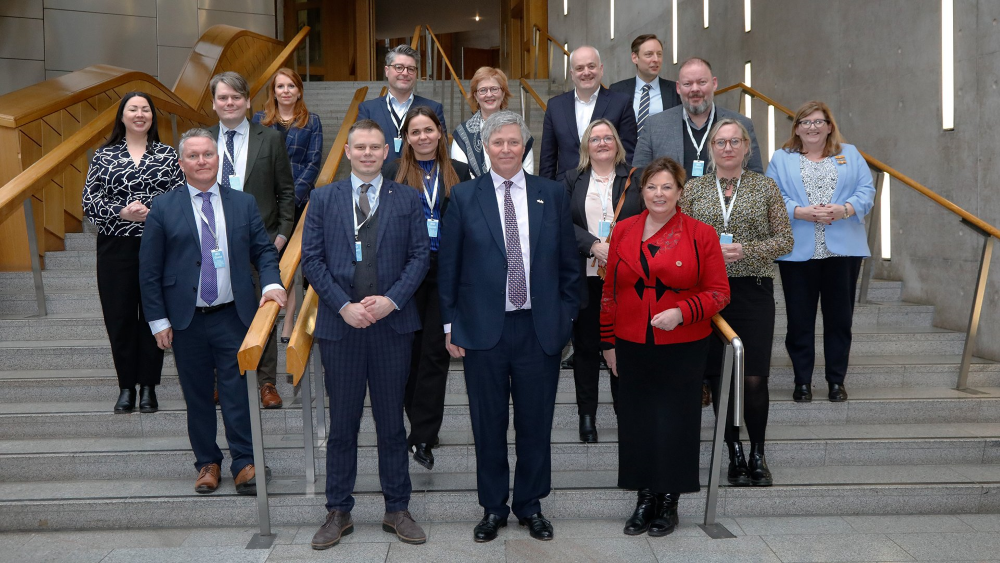Net Zero, Energy and Transport Committee
Annual Report of the Net Zero, Energy and Transport Committee 2022-23
Overview
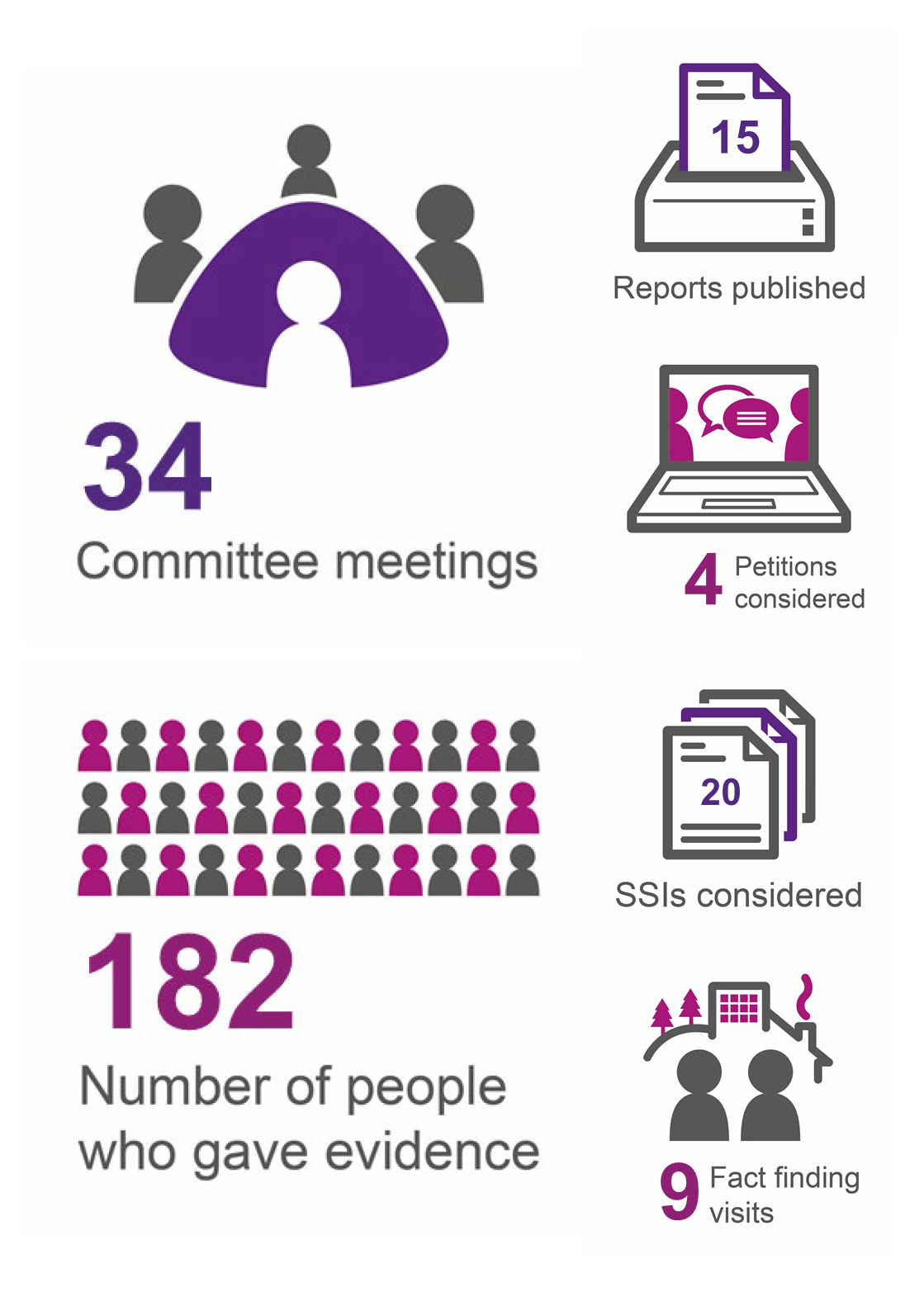
Introduction
This report covers the work of the Net Zero, Energy and Transport Committee during the Parliamentary year from 13 May 2022 to 12 May 2023. The Committee was established in June 2021.
The Committee's remit was amended during the Parliamentary year, following agreement by the Committee to make a formal request to the Parliamentary Bureau.
From 1 February 2022, the Committee's remit - To consider and report on matters falling within the responsibility of the [now former] Cabinet Secretary for Net Zero, Energy and Transport - was amended to insert "with the exception of matters relating to rural land use, wildlife crime and animal welfare."i
Several membership changes occurred during the Parliamentary year—
In September 2022, Edward Mountain replaced Dean Lockhart and was then chosen as Convener in place of Dean Lockhart;
In November 2022, Ash Regan replaced Natalie Don; and
In April 2023, Bob Doris replaced Collette Stevenson as Scottish National Party Substitute Member, and Sarah Boyack replaced Mercedes Villalba as Scottish Labour Party Substitute Member.
The Committee thanks its former Members for their contribution.
Meetings
The Committee met 34 times during the Parliamentary year. One meeting was held entirely in private, one entirely in public, and the other 32 meetings included items taken in public and in private.
The Committee agreed to consider the following business in private—
Evidence heard earlier during meetings;
Candidates for appointment to the role of adviser;
Its work programme;
Correspondence relating to board appointments; and
Draft reports.
Agendas and minutes of all meetings are published on the Net Zero, Energy and Transport Committee webpage at the Scottish Parliament website.
Inquiries and other short-term or rolling scrutiny work
Energy price rises
In July 2022, the Committee reported on its short "snapshot" inquiry into energy price rises. At a time when prices were rising steeply, with serious concerns over whether many households would be able to pay, particularly in the colder months, the inquiry focused primarily on short- and medium-term solutions, longer term structural solutions, and the Scottish Government's role in implementing these.
This followed four evidence sessions during April and May 2022, hearing from a wide range of stakeholders including academics, consumer representatives, energy companies, and the UK and Scottish governments.
The role of local government and its cross-sectoral partners in financing and delivering a net-zero Scotland
In January 2023, the Committee reported on its major inquiry into the role of local government and its cross-sectoral partners in financing and delivering a net-zero Scotland. The aim of the inquiry was to identify the main barriers at a local level to Scotland reaching its net zero targets. It considered what practical steps local authorities are taking to break them down - in partnership with business, the voluntary sector and local communities - and where change will be needed if local authorities are to play a full role in helping to achieve a net-zero Scotland.
The inquiry had been launched in late 2021. The Committee took evidence at meetings throughout March to September 2022 on a wider variety of issues: planning, skills, transport, renewable energy and green finance, among others, as well as hearing from experts on local government strategic planning and finance. The Committee explored all these issues first-hand during visits to Stirling, Aberdeen, Orkney and Dundee, and on a tour of the Holyrood Park Lodge, Edinburgh. At its meeting on 27 September 2022, the Committee took closing evidence from the Scottish Government.
The report opened by stating that:
Scotland will not meet its ambitious target of being net zero by 2045 without a more empowered local government sector, with better access to the skills and capital it will need to play a full role in this energy revolution, and a clearer understanding of the specific role the Scottish Government wants it to play in some key delivery areas.
This set the tone for a report strongly focused on identifying the practical changes needed to help local government play a fuller role in the battle against climate change.
On 14 March 2023, the Committee held a debate in Parliament to highlight the conclusions of its inquiry.i The Committee received a response from the Scottish Government on 20 April and it continues to engage with the Convention of Scottish Local Authorities (COSLA) on the issues raised in its report.
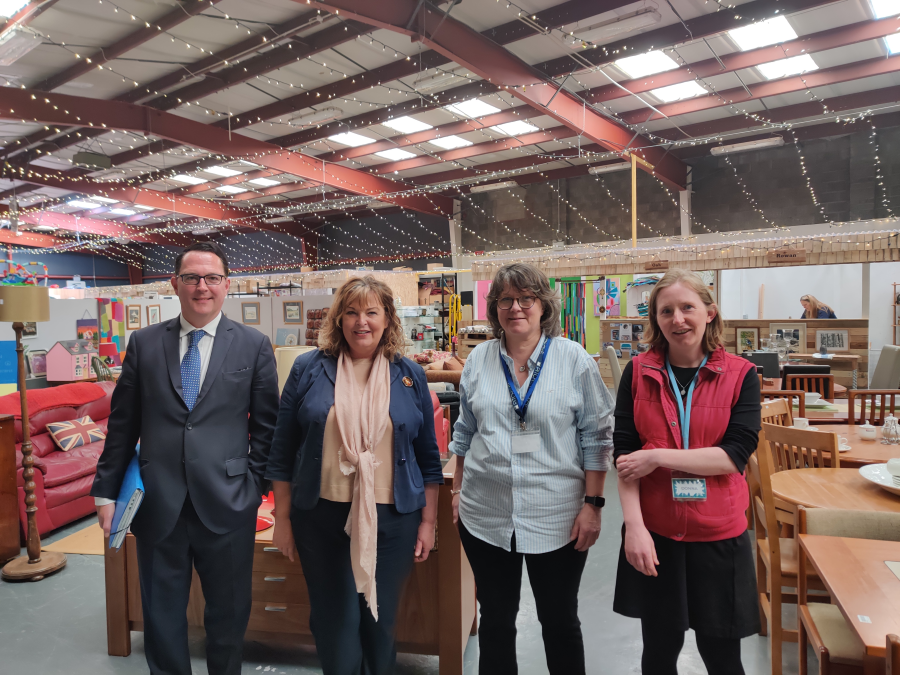
.png)
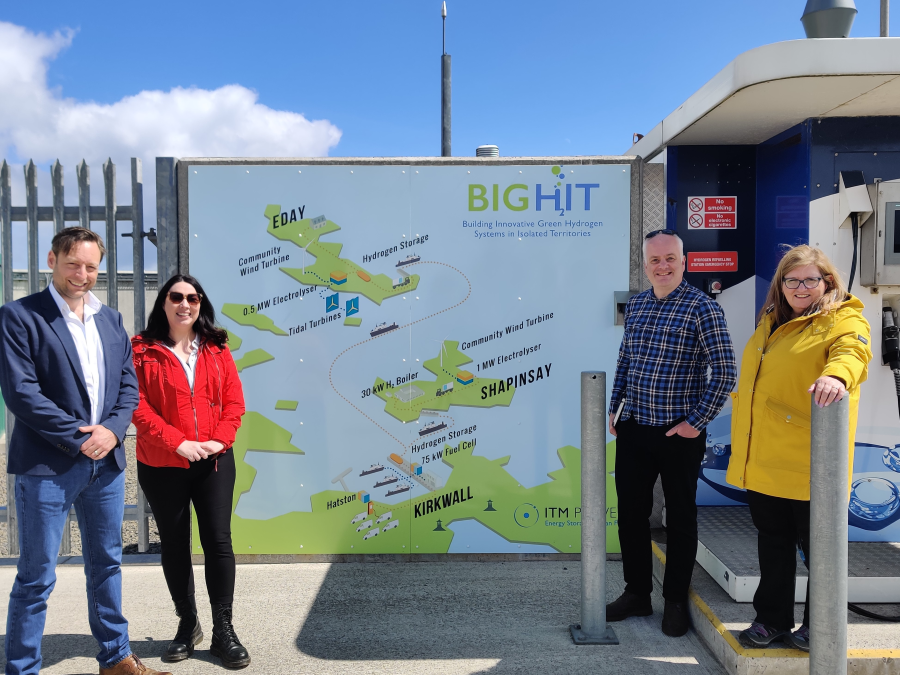
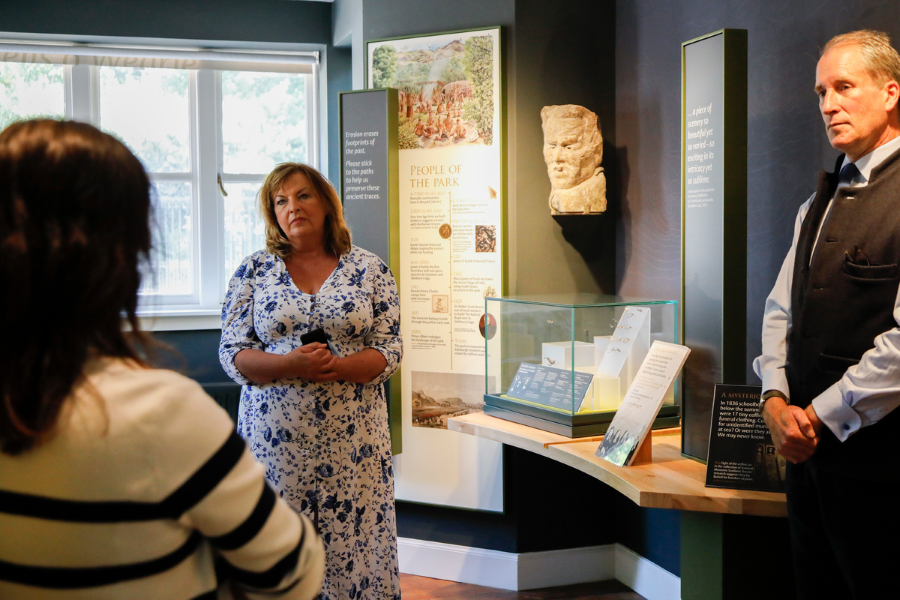
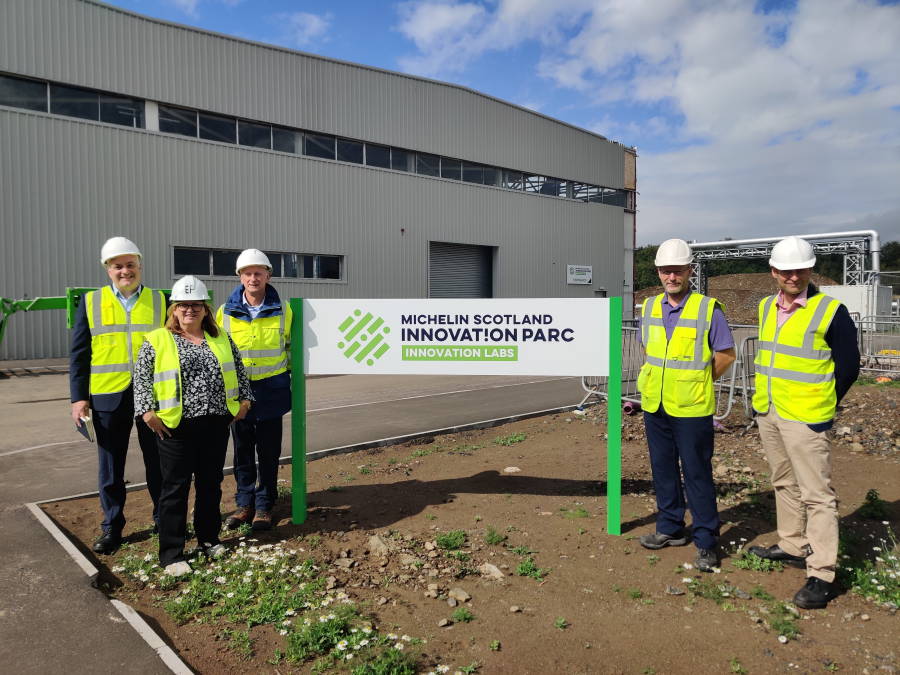
Scottish Biodiversity Strategy
The Committee considered biodiversity policy with a view to informing the Scottish Government's new biodiversity strategy. It received several written submissions and held evidence sessions in early September with two panels of stakeholders involved in nature conservation in the marine and terrestrial environments. The Committee wrote a letter with recommendations for the Scottish Government in late September. The Committee received an initial response on 1 November from the Minister for Green Skills, Circular Economy and Biodiversity. On 12 December, the Minister provided a full response detailing how the updated strategy had incorporated the Committee's recommendations.
Outcomes of the 15th UN Conference on Biodiversity (COP15)
The Committee also took stock of how the Scottish Government's approach to biodiversity policy at a national level aligned with international developments relating to the outcomes of the 15th UN Conference on Biodiversity (COP15). In early March, the Committee held an evidence session with stakeholders to discuss the outcomes of COP15. This was followed by an evidence session with the Minister.
The Committee expects to continue its scrutiny, in the next Parliamentary year, of draft delivery plans to be brought forward by the Scottish Government. These will be key working documents for the new Biodiversity Strategy.
Air quality in Scotland
The Committee was referred the Scottish Government's Air Quality Improvement Plan for scrutiny on behalf of Parliament. The Plan was laid in Parliament on 27 March and prepared in response to an Improvement Report by Environmental Standards Scotland. This was the first time this form of post-Brexit environmental scrutiny had taken place in the Parliament, by way of a process laid out in the UK Withdrawal from the European Union (Continuity) (Scotland) Act 2021; the same Act that established ESS.
The Committee also agreed to look at wider issues relating to air quality in Scotland as part of its consideration of the Plan. This included examining the Scottish Government’s Cleaner Air for Scotland 2 strategy, the Low Emission Zones being introduced in the centres of Scotland's four main cities, and international best practice on air quality.
In February 2023, the Committee issued a call for views to a small group of organisations. The Committee took evidence throughout April, holding a round-table session with stakeholders to explore their views on air quality in Scotland and what measures could assist with tackling air pollution. The Committee then held an evidence session with local authority officials to explore issues around local air quality management, before finally hearing from Environmental Standards Scotland and the Scottish Government. The Committee reported to Parliament in May 2023, endorsing the Improvement Plan, with some caveats.
Programme for Government and budget scrutiny 2023-24
At its meeting on 27 September 2022, the Committee held an evidence session with the then Cabinet Secretary for Net Zero, Energy and Transport on the Scottish Government's Programme for Government 2022-23. During this session, the Committee considered the proposed actions and legislation within the Programme for Government as well as the Cabinet Secretary's priorities for the year ahead.
Committees are responsible for examining the Scottish Government's yearly budget and spending plans within their remit. Each committee prepares a pre-budget report (or letter), with recommendations on how the Scottish Government should spend money in the coming year.i Building on the 27 September evidence session, and on other inquiry-related work, the Committee this year identified four key themes arising from its prior work and agreed to focus its recommendations on—
The Fair Fares Review and bus travel;
Electric vehicle charging point infrastructure;
Conclusions of the inquiry into energy price rises;
The publication of the final Hydrogen Action Plan and associated capital investment, as well as the anticipated Energy and Just Transition Strategy.
Joint Budget Review
In late 2022, the Committee considered a final report from the Joint Budget Review Group (JBR) - a collaborative working group of Scottish Parliament and Scottish Government officials - which looked at Fraser of Allander Institute research on implementing changes in the Scottish Budget on matters relating to climate change. The Finance and Public Administration Committee also participated. The Committee then wrote to the Scottish Government with its observations on the JBR and on next steps, in December 2022.
The aim of the JBR's work was to help set out more clearly the potential effect that decisions on budgetary spending each year may have on greenhouse gas emissions; to help the Parliament make more informed decisions on whether or not to support the budget, or particular aspects of it. Whilst the JBR has now wound up, the Committee views this overall project as ongoing and expects to remain in dialogue with the Scottish Government.
Common Frameworks
Alongside its counterpart committees in other parts of the UK, the Committee has a role in scrutinising Common Frameworksi covering areas of policy falling within its remit.
As part of its scrutiny, the Committee ran a call for views on the following provisional Common Frameworks—
Radioactive Substances
Air Quality
Best Available Techniques/Industrial Emissions (BAT)
Ozone Depleting Substances and F-gases
Chemicals and pesticide
Resources and waste.
In October 2022, the Committee held an evidence session with Scotland's statutory environmental regulatory bodies and discussed provisional Common Frameworks, among other issues. The Committee then wrote a letter in November 2022 with recommendations for the Scottish Government, and the then Minister for Environment and Land Reform responded in January 2023.
A modern and sustainable ferry service for Scotland
The Committee received a public petition (PE1872) saying the unreliability of ferries has resulted in losses to island economies relying on tourism and in travel restrictions for island residents, who need reliable and regular services. The Committee noted there were issues with island connections beyond those covered by the petition and agreed to undertake a comprehensive inquiry into ferry services, with a focus on how ferry services should be provided in future.
The Committee held its first meeting in late June 2022 with a panel of islands community representatives. Amongst the matters discussed were a draft remit for the inquiry and the Committee only finalised its remit after the session had taken place. The Committee resumed taking evidence in November 2022, hearing from independent ferry operators, business and tourism organisations and trade union representatives. During autumn 2022, the Committee made visits to the Isle of Arran, Orkney, and the Western Isles.
In February 2023, the Committee heard from local authorities who either operate Council-run services or are affected by the delivery of ferry services in Scotland. The Committee then heard from senior executives of CalMac Ferries, NorthLink Ferries, and Caledonian Maritime Assets Ltd, before taking closing evidence from Transport Scotland and the Scottish Government at its meeting on 28 February 2023.
The Committee will produce a report to Parliament, with recommendations for the Scottish Government, before summer recess 2023.
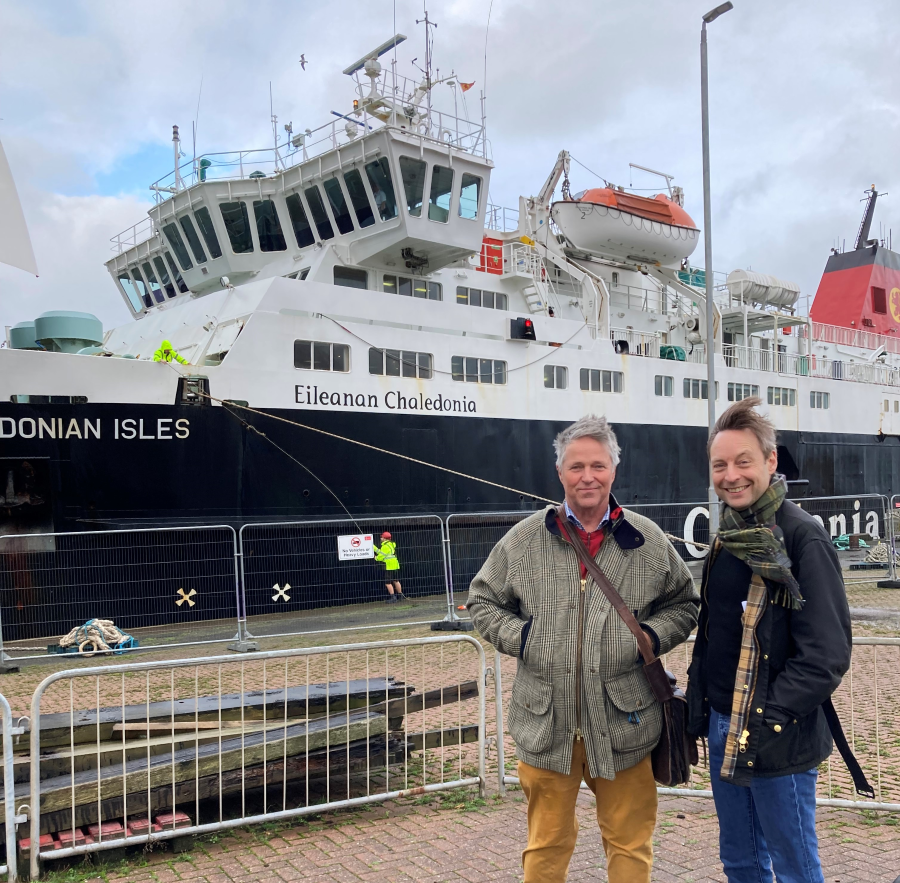
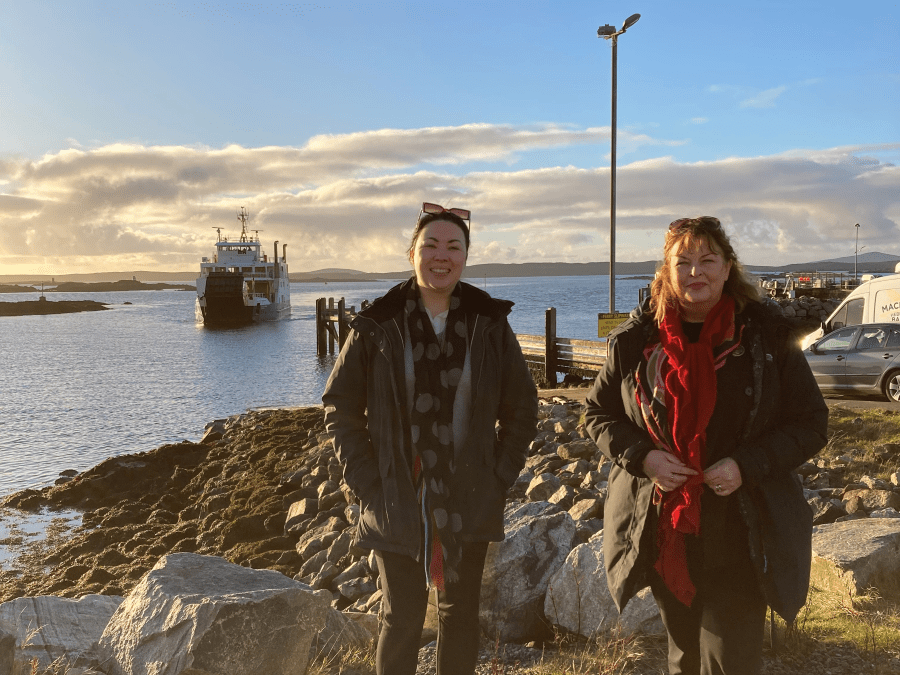
Scotland's electricity infrastructure: inhibitor or enabler of our energy ambitions?
In February 2023, the Committee launched an inquiry into Scotland's electricity infrastructure: inhibitor or enabler of our energy ambitions? As with the energy prices inquiry, this was intended to be a short-duration inquiry, assembling a "snapshot" of views on what electricity infrastructure will be needed to realise the ambitions set out in the Scottish Government's recently released Draft Energy Strategy and Just Transition Plan, and what needs to be done to deliver that infrastructure.
The Committee issued a targeted call for views and received 18 responses. Across four meetings, the Committee took oral evidence from key energy industry stakeholders, the Office of Gas and Electricity Markets (Ofgem) and the UK and Scottish governments. The Committee also undertook a fact-finding visit to ScottishPower Energy Networks’ control room in Glasgow and Whitelee onshore wind farm near Eaglesham.
The Committee will produce a report to Parliament in summer 2023, making recommendations for the Scottish Government as it finalises its draft Energy Strategy and Just Transition Plan.
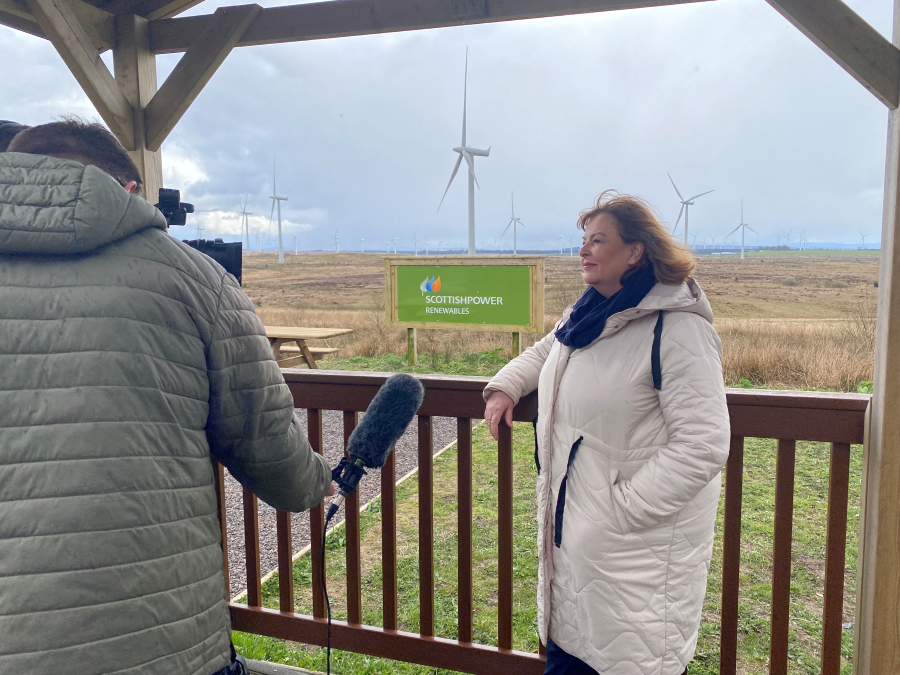
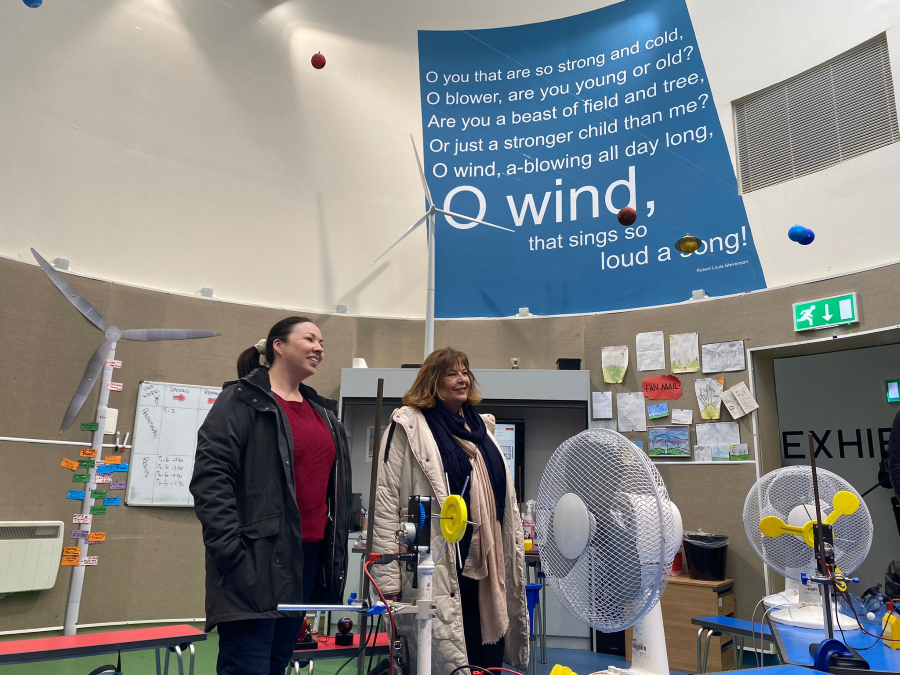
Scotland's Deposit Return Scheme
The Scottish Parliament has legislated to introduce a Deposit Return Scheme (DRS) for single-use drinks containers, the first DRS in the UK. The Committee has been maintaining a watching brief on this issue, which has included considering all relevant subordinate legislation on the DRS in this Parliamentary session. In early March 2023, the Committee agreed to take evidence on the DRS to understand more about the Scheme’s readiness ahead of the launch date of 16 August 2023. (The Scottish Government has since announced that it proposes to delay the launch date to March 2024.)
During March 2023, the Committee took evidence from the Scottish Government and then from senior executives of Circularity Scotland Ltd, the DRS administrators. The Committee anticipates continuing to engage with the Scottish Government and industry stakeholders about the Scheme ahead of the revised launch date.
Legislation
No Scottish Parliament primary legislation (i.e. Bills) was referred to the Committee for scrutiny during the Parliamentary year.
Scottish Statutory Instruments (SSIs)
Scottish statutory instruments are secondary legislation laid under the authority of a piece of primary legislation (the "parent Act"). During the Parliamentary year, the Committee considered—
10 draft instruments subject to the affirmative procedure;
10 instruments subject to the negative procedure.
All of the Committee's SSI reports can be read at the Scottish Parliament website.
Additionally, five 'laid-only' instruments (i.e. subject to no procedure) that were laid in Parliament fell under the Committee's remit.
UK Statutory Instruments (UK SIs)
The Scottish Parliament has the opportunity to consider whether it agrees with decisions by the Scottish Government to consent to provision being made via UK statutory instruments that affect devolved competence. This procedure is a consequence of Brexit and arises in relation to policy areas previously covered by EU Law.
During the Parliamentary year, the Committee received—
Four 'Type 1' consent notifications
One 'Type 2' consent notification.i
The Biocidal Products (Health and Safety) (Amendment) Regulations 2022
The Committee received a Type 1 consent notification in relation to the Biocidal Products (Health and Safety) (Amendment) Regulations 2022, a UK SI to amend the GB Biocidal Products Regulation regime. The Committee sought more information about the UK SI and discussed the proposals at an evidence session on 4 October 2022 with the then Minister for Environment and Land Reform. The Committee responded on 5 October to the consent notification.
The REACH (Amendment) Regulations 2023
The UK REACH regime was created to govern the market for chemical substances in Great Britain following exit from the EU. In March 2023, the Committee received a Type 1 consent notification in relation to the REACH (Amendment) Regulations 2023. The Committee agreed, following its initial consideration, to seek more detail on the operation of UK REACH from relevant regulatory authorities and to hold an evidence session with the Minister at its next meeting. The Committee responded on 30 March to the consent notification.
Legislative consent memorandums
The Committee was designated 'lead committee' for scrutiny of three legislative consent memorandums (LCMs) and one supplementary LCM during the Parliamentary year 2022-23. These arise in relation to a Bill in the UK Parliament proposing to legislate in devolved areas. The Scottish Government and the Scottish Parliament must be asked to state whether they consent to this being done.
High Speed Rail (Crewe - Manchester) Bill (UK Parliament legislation)
On 7 February 2022, the Scottish Government lodged a legislative consent memorandum on the High Speed Rail (Crewe - Manchester) Bill - a Bill which, among other things, authorises the construction of a new train stabling facility for High Speed 2 rolling stock in Annandale, Dumfries and Galloway.i
Levelling-up and Regeneration Bill (UK Parliament legislation)
The Committee was designated lead committee for scrutiny of a legislative consent memorandum (lodged on 27 July 2022 by the Scottish Government) in relation to the Levelling-up and Regeneration Bill. The Bill was introduced in the House of Commons on 11 May 2022.i
The Committee focused its scrutiny on the provision in Part 5 of the Bill relating to the creation of a new regime for environmental assessment of planning and consenting arrangements called “Environmental Outcome Reports” (EORs). The Local Government, Housing and Planning Committee also considered elements of the LCM, sharing its conclusions in a letter to the Committee. The Committee held an evidence session with stakeholders in early October and reported to Parliament on 22 December 2022.
Energy Bill (UK Parliament legislation)
The Committee was designated lead committee for scrutiny of a legislative consent memorandum (lodged 28 September 2022) in relation to the Energy Bill. The Bill was introduced in the House of Lords on 6 July 2022.i
The Committee first considered the LCM at its meeting on 6 September 2022 and later agreed to seek written evidence from a small group of stakeholders. At its meeting on 24 January 2023, the Committee took evidence from the then Cabinet Secretary for Net Zero, Energy and Transport and explored the Scottish Government's position on the Bill, including its reasons for recommending that legislative consent be withheld. The Committee also took into account the Delegated Powers and Law Reform Committee's scrutiny of the Bill.
Following the lodging of amendments about offshore regulation, the Scottish Government lodged a supplementary legislative consent memorandum (lodged 25 January 2023). The Committee decided there was no need to take further evidence on the supplementary LCM as the issues it raised had been adequately covered during its 23 January evidence session with the Scottish Government.
The Committee reported to Parliament on 17 March 2023. The report anticipates the possibility of a second supplementary LCM, in which case the Committee would, if the legislative timetable permits, resume scrutiny of relevant aspects of the UK Bill.
Retained EU Law (Revocation and Reform) Bill (UK Parliament legislation)
Another UK Bill that led to the lodging of an LCM in the Scottish Parliament was the Retained EU Law (Revocation and Reform) Bill. The Committee was not assigned any formal role in relation to scrutiny of this LCM. However, the Bill has a potentially significant impact on environmental law in Scotland.
In February 2023, as part of its wider consideration of environmental policy and regulation, the Committee considered potential impacts of the Bill.i. The Committee wrote to the Scottish and UK governments seeking more information on the legislative process (if the Bill were to be enacted in its current form) and raised practical concerns about implications on its work programme. The Scottish Government responded on 10 March and the UK Government responded on 20 April.
Statutory bodies and regulators
Environmental regulation: NatureScot, SEPA and Environmental Standards Scotland
At its meeting on 25 October 2022, the Committee held an evidence session with Scotland's statutory environmental regulatory bodies including NatureScot and the Scottish Environment Protection Agency (SEPA) as well as Environmental Standards Scotland. The purpose of the session was to explore a number of topical matters relating to Scotland’s regime of environmental law and regulation post-Brexit, including—
Environmental regulation in Scotland
Environmental Common Frameworks
Legislative consent memorandum on the Levelling-up and Regeneration Bill (UK Parliament legislation)
Scottish Budget 2023-24.
At the same meeting, the Committee considered Environmental Standards Scotland's draft Strategic Plan for 2022-25, as required under section 22 of the UK Withdrawal from the European Union (Continuity) (Scotland) Act 2021. The Committee took oral evidence from representatives of ESS before reporting to Parliament.
In March, the Committee considered proposals by the Scottish Government to appoint two additional Members to the Board of Environmental Standards Scotland. The Scottish Government wrote to the Committee recommending the proposed candidates, and providing relevant information about their credentials and the appointments process. The Committee considered the correspondence in private at its meeting on 21 March. The Committee then agreed to recommend to Parliament approval of the two candidates for appointment to the ESS Board. The Committee confirmed its decision in a response to the Scottish Government on 22 March.
Scottish Water's Annual Report & Accounts 2021-22
At its meeting on 22 November 2022, the Committee held an evidence session with Scottish Water on its Annual Report and Accounts 2021-22. The Committee also took the opportunity to discuss wider issues around water policy and infrastructure in Scotland, hearing - on the same panel - from Business Stream (a subsidiary of Scottish Water serving non-domestic customers) and the Water Industry Commission for Scotland (the economy regulator for the industry).
Climate Change Committee: 2022 Report to Parliament and Scottish Emissions Targets - first five-yearly review
At its meeting on 20 December 2022, the Committee took evidence on two major reports published in December by the UK Climate Change Committee: its 2022 Progress Report to the Scottish Parliament and its first five-yearly review of Scottish Emissions Targets. The session provided the Committee with an opportunity to discuss key messages in the CCC's report and key themes from the Committee's inquiry into the role of local government and cross-sectoral partners in financing and delivering a net-zero Scotland.
Petitions
The Committee considered four public petitions during the Parliamentary year, three of which had been carried forward from the previous year—
PE1750: Independent Monitoring of Satellite tags fitted to raptors, a petition by Alex Hogg on behalf of Scottish Gamekeepers Association, calling on the Scottish Parliament to urge the Scottish Government to introduce independent monitoring of satellite tags fitted to raptor species, to assist the police and courts in potential wildlife crime cases and to provide data transparency;
PE1815: Translocate protected beavers to reduce licensed killing, a petition by Steve Micklewright on behalf of Trees for Life, calling on the Scottish Parliament to urge the Scottish Government to initiate a programme to translocate protected beavers to suitable habitat outside existing beaver range, to minimise the need to kill animals adversely impacting arable farmland;
PE1872: Improve the reliability of island ferry services, a petition by Liz Mcnicol, calling on the Scottish Parliament to urge the Scottish Government to urgently ensure that all Islanders have access to reliable ferry services;i and
PE1866: Introduce legislation to improve bus travel for wheelchair users, a petition by Daryl Cooper, calling on the Scottish Parliament to urge the Scottish Government to introduce legislation so that wheelchair users are able to face frontwards when travelling on a bus.
After due consideration, all four petitions were eventually closed. You can read about the Committee's consideration of each petition, including all correspondence and submissions, at the relevant petition webpage.
Advisers
During this Parliamentary year, the Committee appointed two advisers to support scrutiny and inquiry work over the remainder of the Session. The Committee's advisers are—
Dr. Dan Barlow, Honorary Fellow, Edinburgh Climate Change Institute. Dr. Barlow is the Committee's adviser on climate change and net zero targets;i and
Prof. Colin Reid, Professor in Law, University of Dundee. Prof. Reid is the Committee's adviser on environmental standards and regulation in a post-Brexit context.
Equal opportunities and Committee outreach
A modern and sustainable ferry service for Scotland
The Committee was the first to use the Parliament's Sustainable Development Impact Assessment Tool (SDIA Tool) to scope a major inquiry, when it considered its approach to its inquiry into a modern and sustainable ferry service for Scotland. The SDIA Tool workshop, facilitated by the Scottish Parliament Information Centre (SPICe), ensured that sustainable development was embedded in the Committee's scrutiny. Amongst other things, this helped the Committee to ensure that the inquiry focused on, and listened to, priority groups such as young people; older people, disabled people and other ferry users with accessibility needs.
During a visit to Orkney in relation to the inquiry, the Convener facilitated a round-table discussion with representatives from the island to listen to their experiences of using ferry services to and within the archipelago. A variety of local stakeholders attended the round-table, and this included older people, users with mobility issues and others speaking for their interests. The Convener also met with school pupils from the small island of Shapinsay whilst on board an inter-islands ferry service. The school pupils gave a first-hand account of growing up in a remote community and described how ferry services could better meet their needs.
On 17 January 2023, the Committee held an online engagement event with Members of the Scottish Youth Parliament to learn more about how ferry services could better meet the needs of young people. The Committee then held an online meeting with representatives of island communities to listen to their current needs and future priorities for ferry services in Scotland.
The role of local government and its cross-sectoral partners in financing and delivering a net-zero Scotland
On visits, the Committee met with third-sector organisations to hear about their partnerships with local authorities and their innovative work towards delivering Scotland's ambitious net zero goals. In Stirling, Members visited a community food initiative and a local reuse project. In Dundee, Members listened to presentations by various representatives from Dundee's creative network. A common theme of both visits was the strong link between volunteering in areas such as climate change or environmental projects and improved mental health. In Orkney, the Committee had discussions with groups working to address fuel poverty and with people helping to make remote communities self-sufficient in renewable energy.
Scotland's electricity infrastructure: inhibitor or enabler of our energy ambitions?
The Committee held an online engagement event with leaders of small- and medium-sized enterprises (SMEs) working on innovation in renewable energy systems to hear their views on the future electricity infrastructure needed for Scotland. Many innovative SMEs in these are based well outside the central belt and this event helped ensure that these voices were heard, as well as being held outside normal working hours.
